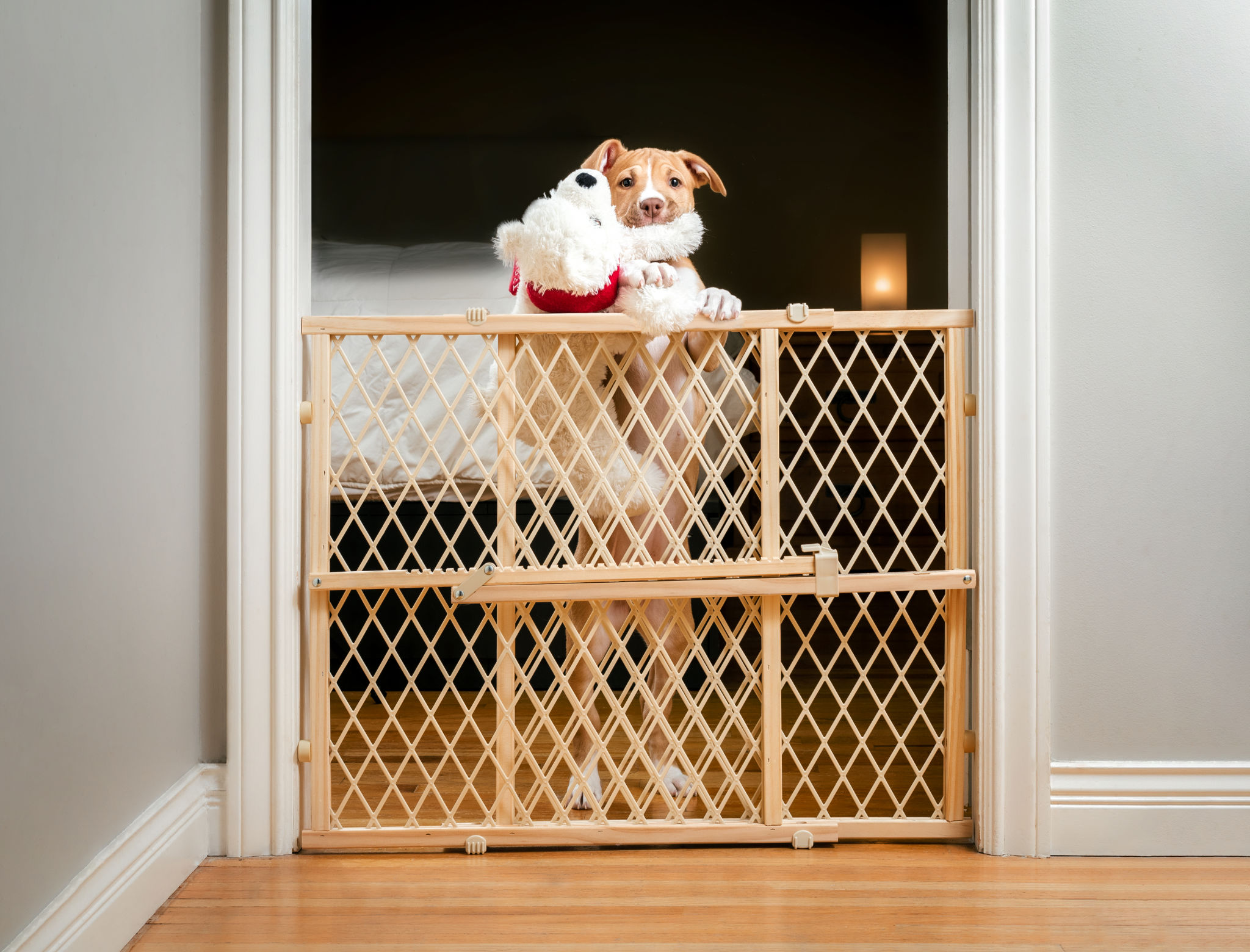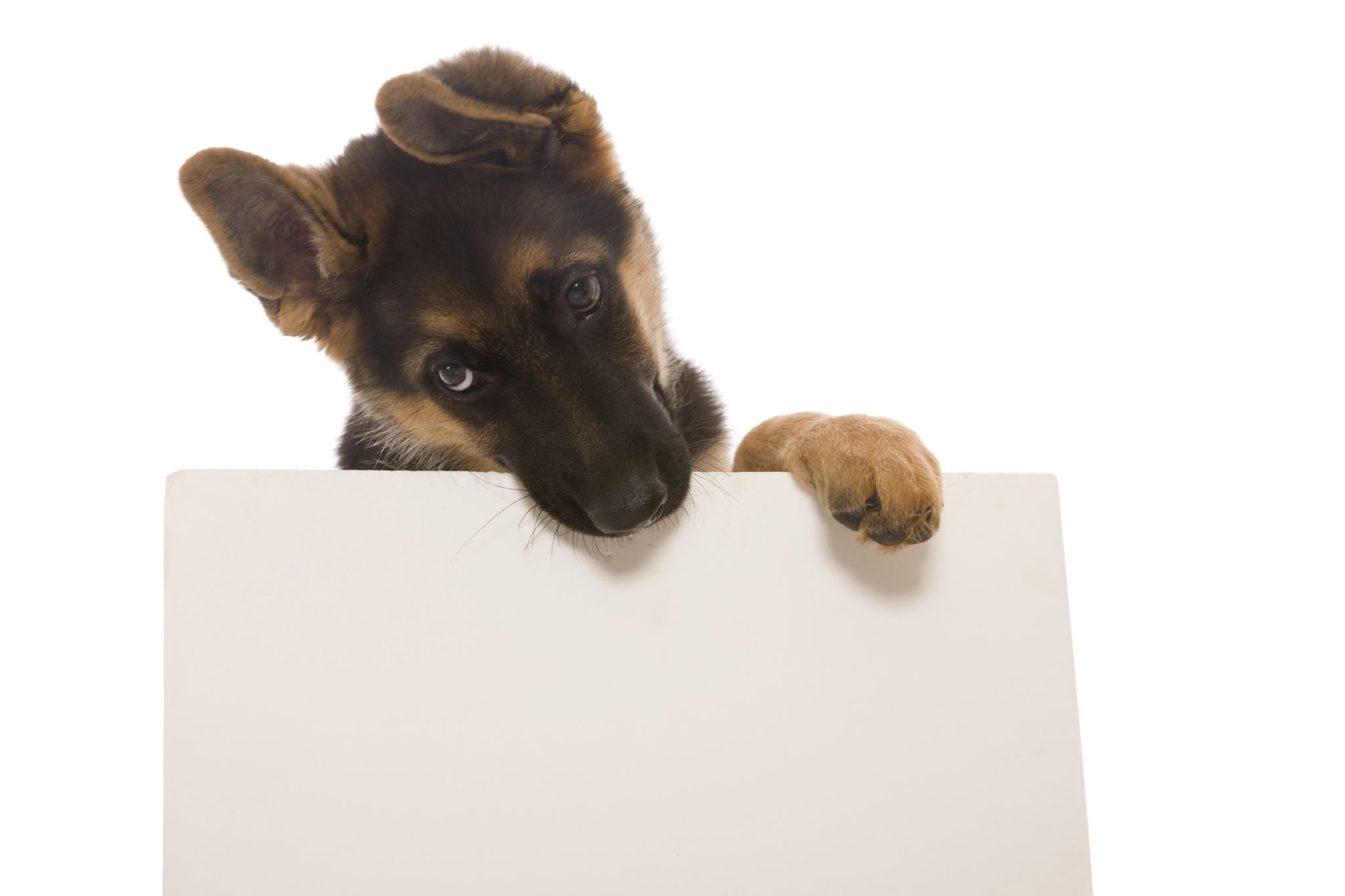Preparing Your Home for a German Shepherd Puppy: Essential Tips
Creating a Safe Environment
Bringing a German Shepherd puppy into your home is an exciting time, but it also requires careful preparation to ensure your new furry friend is safe and comfortable. Begin by puppy-proofing your home. This means removing any hazardous items such as electrical cords, small objects that could be swallowed, and toxic plants. Consider using baby gates to section off areas that are off-limits to your puppy.
It's also essential to secure any loose items that might be knocked over by an energetic puppy. Remember, German Shepherds are curious and intelligent, so they might reach or climb to explore. Make sure that breakable items are kept out of reach, and secure heavy furniture that could pose a risk.

Setting Up a Comfortable Space
Your German Shepherd puppy will need a designated space to call their own. Set up a cozy area with a comfortable bed where they can relax and feel secure. This space should be in a quiet part of the house, away from the hustle and bustle, to provide them with a peaceful environment to retreat to when needed.
In addition to a bed, provide toys and chew items to keep your puppy entertained and help with teething. A variety of toys can help stimulate their mind and prevent boredom. Consider rotating toys every few days to keep them engaged.
Stocking Up on Supplies
Before bringing your new puppy home, make sure you have all the necessary supplies. This includes food and water bowls, high-quality puppy food, a collar and leash, and grooming tools. It's important to choose supplies that are appropriate for the size and breed of your puppy.

In addition to the basics, consider getting a crate for crate training. Not only does this provide a safe space for your puppy, but it can also be invaluable for house training. Choose a crate that is large enough for your puppy to stand up, turn around, and lie down comfortably.
Establishing a Routine
German Shepherds thrive on routine, so establishing a consistent schedule from the start will benefit both you and your puppy. This includes regular feeding times, scheduled potty breaks, and designated playtimes. A routine helps your puppy understand what to expect and can aid in training.
Additionally, plan for socialization opportunities. German Shepherds are social animals, and early socialization is crucial for their development. Arrange playdates with other dogs or take them to the park to interact with different people and pets.

Preparing for Training
German Shepherds are known for their intelligence and trainability, making early training an essential part of their development. Start with basic commands like sit, stay, and come. Consistency is key, so ensure everyone in the household uses the same commands and techniques.
Positive reinforcement is highly effective with this breed. Use treats, praise, and affection to reward good behavior. This not only helps with training but also strengthens your bond with your puppy.
Understanding Health Needs
Your German Shepherd puppy's health should be a top priority. Schedule a vet appointment soon after bringing them home for a check-up and vaccinations. Discuss a suitable vaccination schedule with your vet and consider options for flea and tick prevention.
Nutritional needs are also critical for growing puppies. Ensure you provide a balanced diet tailored to their specific requirements. Consult your vet about the best food options and portion sizes for your puppy's age and weight.